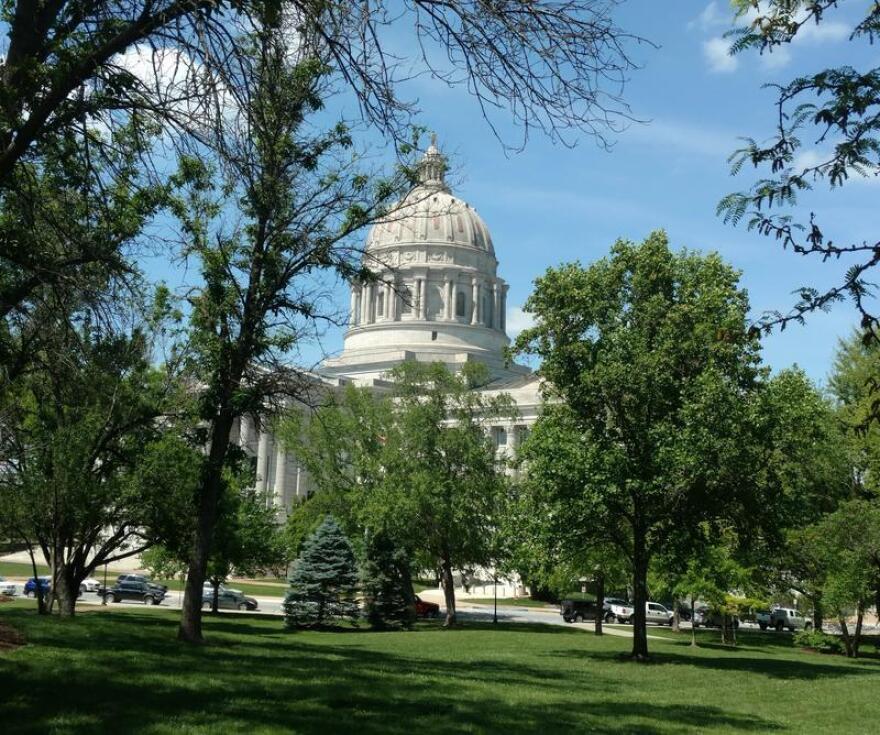Missouri’s 2018 General Assembly session will likely be remembered most for the legal and ethical travails of Gov. Eric Greitens. But the Republican-dominated legislature managed to approve numerous policy initiatives — the impact of which may last longer than Greitens’ tenure.
Lawmakers cut individual income taxes, targeted union-pay requirements, raised the age someone can be considered an adult in court to 18 and approved a pilot program for industrial hemp. But they failed to move on things like decriminalizing medical marijuana and banning discrimination against LGBTQ Missouri residents.
Greitens (or, if lawmakers end up impeaching him and removing him from office, his successor) has until July 15 to sign most of the bills except those related to the budget, which must be signed by June 30.
Here are the notable things that did and didn’t make it out of the legislature, as well as what’ll be left to voters in August and November.
What passed (awaiting the governor’s signature)
- Tax cuts: The legislature voted to cut personal and corporate income taxes. The state’s top personal tax rate will go from 5.9 percent to 5.1 percent if certain revenue targets are met; corporate rates will decline from 6.25 percent to 4 percent in 2020. The measure was stripped down from an initially broad raft of proposals--the original 429-page bill was ultimately reduced nine pages. Still, some Democratic legislators complained that the data underlying the cuts is faulty (a $60 million calculation error had already been found) and that the state will be left with budget deficits in coming years.
- School funding: The state budget was approved the week before the final days of session, providing an extra $98 million for K-12 schools and raising tuition by 1 percent at most public universities. Lawmakers, after restoring $68 million in cuts to state universities proposed by the governor, took an extra but tentative step regarding higher ed funding with a provision to allow schools to raise tuition by the rate of inflation, plus up to 5 percent, but only if state funding had been cut the year before.
- Prevailing wage: The measure would relax some requirements that local governments pay union wages for public projects, allowing all but the most populated cities and counties to pay lower wages. The bill was watered down from earlier versions that eliminated the prevailing wage law entirely, but still passed with mostly Republican votes on party lines.
- Juvenile age: Missouri would join all but a handful of states by raising the age someone can be tried as an adult in a criminal case from 17 to 18. The “raise the age” effort had bipartisan support.
- Hair braiding: People who braid hair wouldn’t have to go through 1,500 hours of training to obtain a cosmetology license, but instead pay $20 to be registered in the state and watch an hour-long video.
- Industrial hemp: The state will have a pilot program to grow industrial hemp, which comes from the same plant as pot but has low levels of THC. The crop has grown in popularity, with pilot programs more than half of U.S. states (including Kansas). Plus, U.S. Senate Majority Leader Mitch McConnell from Kentucky has introduced a bill to legalize it nationally. Hemp also contains CBD, an oil that’s purported to have medicinal properties.
- Meat definition: Once signed, Missouri will be the first state to explicitly state that meat is from “harvested production livestock or poultry.” That means vegan meat substitutes, plant-based proteins and lab-grown meat will not be able to label themselves as such.
- State employees: Workers for state agencies will no longer receive pay increases under a merit system, and most will be considered “at-will” employees who can be terminated without cause. Missouri state employees are among the lowest-paid in the nation.
- Raising marriage age: Missouri will no longer be the state with the least restrictive marriage-age requirements, raising the age from 15 to 16 and eliminating the ability for a judge to waive the requirement. Lawmakers also made it illegal for anyone 21 or over to marry someone under 17 and eliminated the statute of limitations for sexual offenses involving a minor.
What didn't pass
- Abortion: The House passed an effort to ban abortions after a fetus reaches 22 weeks gestation, but didn’t come up for a final vote in the Senate. Called the “Pain Capable Unborn Child Protection Act,” the proposal was rooted in disputed claims that a fetus can feel pain at that point in a pregnancy.
- Changing term limits: A proposal passed by the Senate would have amended the state constitution to allow legislators to serve up to 16 years in either chamber, rather than the current eight years in each. The measure, which would have required voter approval, also could have reset the clock for all currently serving legislators to zero. The bill – which also banned most lobbyist gifts – died in the House on the session’s final day.
- Gun laws: Though much discussed, efforts to loosen and strengthen Missouri’s gun laws all fell short. Gun rights advocates hoped to eliminate “gun-free zones” and prohibit municipalities from restricting open carry. Gun safety advocates fell short in efforts to limit who could buy a gun.
Medical marijuana: A measure that would have allowed terminal patients and people with intractable epilepsy to use a non-smokeable form of medical cannabis passed the House, but didn’t make it to a Senate hearing. The issue, with an expanded list of qualifying conditions, is bound for voters in November.
- Missouri Non-Discrimination Act: A proposal (known as MONA) to ban discrimination on the basis of sexual orientation or gender identity fell short, as it has for each of the past 20 years. But for the first time, a House committee recommended passage, albeit on a controversial late-night vote with several members absent.
What’s up to voters
- Gas tax increase: Voters will decide in November whether to increase the state’s gas tax by 10 cents per gallon (phased in over four years). Bipartisan supporters of the idea say it will provide much-needed funding for state highways and bridges. The same bill asks voters to approve a tax deduction for any prize associated with winning an Olympic medal.
- Right to work: Missouri residents will vote in August on repealing a law — passed by the legislature in 2017 but on hold until this vote — that would prevent employers and unions from requiring all workers in a bargaining unit to pay dues. The decision to vote on the initiative in the August primary, rather than in November’s general election, was favored by Republican majorities who believe the measure will draw more Democratic voters, who tend to support labor unions. Meanwhile, a last-minute attempt to enshrine so-called right-to-work law in the state constitution passed the House but failed to make it to the Senate floor.
- Medical marijuana: Backers have submitted more than the required amount of signatures to get a broader medical cannabis law on the ballot, likely November. In fact, they’ve submitted three different proposals. Under the initiative petition with the most signatures, people with cancer, glaucoma, chronic conditions, HIV, AIDS and other medical ailments could use medical cannabis, as well as letting doctors decide whether patients should qualify for things like Crohn’s disease or Alzheimer’s.
- Ethics and redistricting reforms: Known as “Clean Missouri,” this ethics reform effort is on the November ballot. It’ll ask voters whether they want to ban lobbyist gifts beyond $5, lower campaign-contribution limits and keep lawmakers from becoming lobbyists until two years after leaving office. The issue has been one that lawmakers have tried and failed to get to the governor’s desk for years. The measure also changes how legislative district boundaries are drawn, relying on a nonpartisan expert rather than a politically appointed commission.
This article has been updated with additional items not passed by the General Assembly.
Brian Ellison is host of KCUR's Statehouse Blend Missouri podcast and reports on Missouri politics and government. Follow him on Twitter @ptsbrian.
Erica Hunzinger is the editor of Harvest Public Media and a contributor to KCUR 89.3. You can reach her on Twitter @ehunzinger.



